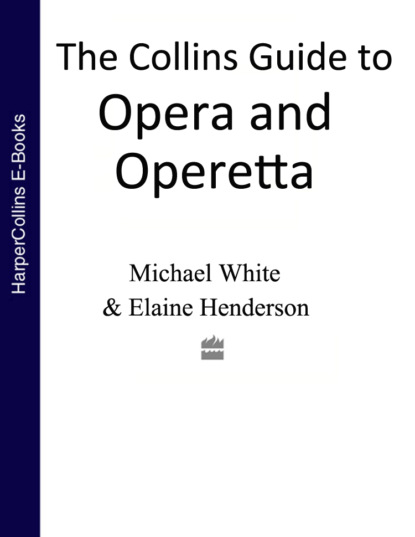По всем вопросам обращайтесь на: info@litportal.ru
(©) 2003-2024.
✖
The Collins Guide To Opera And Operetta
Автор
Год написания книги
2018
Настройки чтения
Размер шрифта
Высота строк
Поля
PROLOGUE An inquest has been held on the death of Grimes’ apprentice, lost at sea in suspicious circumstances. In spite of the villagers’ doubts, Grimes has been exonerated, but advised not to take another boy.
ACT I Keene comes to see Grimes to tell him that he has found him another apprentice. Several objections are raised to this and Hobson refuses point-blank to fetch the boy from the workhouse until Ellen Orford, who sympathises with Grimes, agrees to accompany him. As a storm approaches, the villagers retire to the Boar, leaving Grimes alone with Balstrode, who advises the unpopular fisherman to leave the village altogether. In a rare moment of optimism, Grimes confides to Balstrode his hopes of acquiring money, respect from the villagers and, eventually, Ellen Orford as his wife. Later, Grimes joins the villagers in the Boar as the storm lashes around them, but he makes them uneasy. Indeed they become positively angry when Hobson, Ellen and the new boy arrive, soaked and exhausted, and Grimes insists on taking the boy out again immediately.
ACT II Ellen is disturbed to see a bruise on the boy’s neck and remonstrates with Grimes when he insists, on a Sunday, that the boy must work. Grimes’ response is to hit her, an act grimly noted by the villagers who are, at that moment, emerging from church. Feelings against Grimes are rapidly rising and a deputation is sent to his hut to find out the truth. Hearing the villagers approaching, Grimes hustles the boy out of the hut and on to the cliff path; minutes later he falls to his death.
ACT III Grimes seems to have disappeared and the boy’s sweater has been found on the beach. Hysteria and suspicion dominate the atmosphere and a full-scale manhunt is launched. But it is Ellen and Balstrode who find the half-demented Grimes. Ellen wants to take him home but Balstrode advises him that he has no alternative but to take his boat out to sea and sink it. Grimes accepts the inevitable.
Music and Background
This is the opera that put Britten, and British opera, on the map; and it remains the most popular work in the composer’s stage catalogue. Using a big orchestra with Verdian force, and sometimes methods, it has all the ingredients of traditional grand opera (including a Mad Scene) recast in 20th-century terms. The chorus scenes can be electrifying, the central role (one of the great tenor parts of modern times) a fascinatingly ambivalent synthesis of lyric beauty and brute force, and there is a memorable sequence of ‘sea interludes’ which function as orchestral entr’actes but also, in the manner of Berg’s Wozzeck, chart Grimes’ descent into mental breakdown.
Highlights
The storm interlude and Grimes’ unnerving one-note soliloquy ‘Now the Great Bear and Pleiades’ in Act I. Ellen’s radiant and archetypally Brittenesque aria ‘Glitter of waves’, the manhunt chorus ‘Now is gossip put on trial’ and orchestral passacaglia in Act II. The second manhunt, with its devastating chorus cries of Peter’s name, and Grimes’ Mad Scene in Act III.
Did You Know?
Peter Grimes is the product of homesickness. The setting is Aldeburgh, close to where Britten had been brought up, but he took the idea for the opera from a magazine item on George Crabbe that he read while he was living in America. The article was by E.M. Forster, and it began: ‘To think of Crabbe is to think of England’.
Recommended Recording
Peter Pears, Claire Watson, Geraint Evans, Royal Opera, Covent Garden/Benjamin Britten. Decca 414 577-2. Made in 1958 and now with a number of rival versions, including Jon Vickers in the title role for Philips, but still without equal.
The Rape of Lucretia (#ulink_6cef50bd-2596-5d64-bd1f-2372abd14540)
FORM: Opera in two acts; in English
COMPOSER: Benjamin Britten (1913–76)
LIBRETTO: Ronald Duncan; after André Obey’s play, itself based on Livy and Shakespeare
FIRST PERFORMANCE: Glyndebourne, 12 July 1946
Principal Characters
Lucretia, Collatinus’ wife
Mezzo-soprano
Collatinus
Bass
Tarquinius, ruler of Rome
Baritone
Junius
Baritone
Male Chorus
Tenor
Female Chorus
Mezzo-soprano
Synopsis of the Plot
Setting: Rome; 510 BC
ACT I In the army camp Tarquinius, Collatinus and Junius are drinking steadily and complaining about the general untrustworthiness of women, with the exception of Collatinus’ wife, Lucretia, who is known to be absolutely and unshakeably faithful. This assertion provokes Tarquinius, who rides furiously to Rome with the sole intention of destroying Lucretia’s reputation. When Tarquinius arrives at her home, Lucretia welcomes him, rather uneasily, and offers him hospitality.
ACT II Tarquinius creeps into Lucretia’s room and she, sleepily imagining it to be her husband, responds to him before realising the truth and struggling, in vain, to prevent him from raping her. The next day Lucretia sends for Collatinus, who quickly learns the truth from her attendants. Collatinus reassures his wife of his love for her but Lucretia’s shame is too great for her to bear and she stabs herself to death.
Music and Background
The Rape of Lucretia followed Peter Grimes in Britten’s output but was written for far more modest resources – eight voices and a chamber ensemble of thirteen instruments – which reflect a concern for the practical problems of getting opera onto the stage in the years of austerity immediately after the Second World War. The tone of the writing is itself austere, stiff with an emotional restraint that limits the opera’s popularity. But the brilliance with which Britten draws from these small resources ingenious effects like the opening evocation of a sultry Italian night – complete with bullfrogs and cicadas – is undeniable, and the vividness of this sound-painting more than compensates for moments of monochrome dryness elsewhere.
Highlights
The Male Chorus account of Tarquinius’ night-ride in Act I is tense with excitement. In Act II the most purely beautiful music comes, oddly perhaps, as Tarquinius steals upon the sleeping Lucretia, singing ‘Within this frail crucible of light’.
Did You Know?
The lingering logistical problem with The Rape of Lucretia is why a devoted wife who has been violated against her will should feel any guilt. Stage directors tend to address the issue by implying that she harbours hitherto unrealised desires for Tarquinius – although this doesn’t endear their productions to feminist commentators.
Recommended Recording
Janet Baker, Peter Pears, Heather Harper, English Chamber Orchestra/Benjamin Britten. Decca 425 666-2. Discs that captured Janet Baker on peak form in 1970, with singing of depth and dignity.
The Turn of the Screw (#ulink_2ed1d41f-fa47-530e-a099-350d6035e7b0)
FORM: Opera in a Prologue and two acts; in English
COMPOSER: Benjamin Britten (1913–76)
LIBRETTO: Myfanwy Piper; after the story by Henry James
FIRST PERFORMANCE: Venice, 14 September 1954
Principal Characters
The Prologue
Tenor









